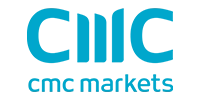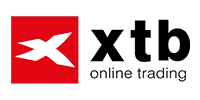Table Of Contents
- Why is Switzerland an Important Financial Capital?
- FINMA in Brief
- What Protection Does FINMA Provide FOREX Traders?
- Table of Top Finma Regulated Brokers
- How to Verify that a Broker Is FINMA-Regulated
- How Much Money Do You Need to Get started?
- How to Avoid Scams Through FINMA
- What to Look for Among the Best FINMA-Regulated Brokers?
- Commission and Fees
- Using Leverage with FINMA-Regulated Brokers
- FINMA and Negative Balance Protection
- Tradable Assets and Instruments
- Payments, Deposits, and Withdrawals
- The Importance of Customer Service
- Ask Other Traders on Our Network
- Trading Platforms, Tools, and Features
- Tips to Get Started Trading with a FINMA-Regulated Broker
- How to Improve Your Knowledge of FOREX Trading
- Filing a Complaint Against a FOREX Broker
- Let’s Recap
- Arincen’s Review Methodology
Best FINMA-Regulated FOREX Brokers
Why is Switzerland an Important Financial Capital?
For a start, we should mention that FINMA-regulated brokers do not only accept clients from Switzerland. You don’t have to live in Switzerland to get the benefit of FINMA’s excellent regulation.
Switzerland is a major financial capital of the world. Its prominence as a global financial capital and a hub of trading markets can be attributed to several factors:
Historical Stability: Switzerland has maintained political neutrality and stability for centuries, which makes for an environment of trust for depositors and investors.
Bank Secrecy: Historically, Swiss banking laws prioritized discretion, attracting wealthy individuals and entities from around the world. Although bank secrecy has been relaxed recently due to international pressure, the tradition of confidentiality remains strong.
Highly Developed Financial Infrastructure: Swiss banks are among the world's largest and most influential. Zurich and Geneva are major hubs for wealth management and private banking. That said, this year saw Switzerland’s financial clout take a knock when one of its major banks, Credit Suisse, had to be taken over by rival UBS.
Currency Strength: The Swiss Franc (CHF) is considered a "safe-haven" currency, which means that in times of global economic uncertainty, investors often convert their assets into CHF, thus reinforcing Switzerland's financial importance.
Regulatory Environment: Given these factors, it’s no surprise that Switzerland offers a well-established and predictable regulatory framework. FINMA ensures a robust and transparent financial market.

FINMA in Brief
Why is FINMA so well regarded? FINMA is the Swiss body responsible for financial sector regulation in the country. This includes the supervision of banks, insurance companies, stock exchanges, FOREX brokers and other financial intermediaries present in Switzerland.
FINMA is an independent institution with its own legal personality, based in Bern. It is institutionally, functionally and financially independent from the central federal administration and the Federal Department of Finance (FDF) and reports directly to the Swiss parliament.
For FOREX companies specifically, FINMA plays two roles. The first is to uphold transparency. The second is to prevent scam brokers from stealing their customers’ money. For more information on the anatomy of a FOREX scam, read our article here. Given its excellent reputation, a significant number of FOREX brokers and binary options brokers from all around the world have obtained registration from FINMA.
What Protection Does FINMA Provide FOREX Traders?
Table of Top Finma Regulated Brokers

ICM capital
ICM Capital is a UK-origin broker that operates worldwide. The firm provides access to diverse trading products, including FOREX, commodities, futures, and indices. ICM offers a secure and efficient trading environment by combining advanced technology with deep liquidity. The company prides itself on delivering high liquidity, tight spreads, mobile trading, and advanced technical analysis.
Why we picked ICM Capital
For its robust regulatory framework and global oversight. Its presence across multiple jurisdictions demonstrates a genuine commitment to investor protection. This foundation makes it a dependable choice for both new and seasoned traders.
| Broker Evaluation | 9.11 |
| Regulations | FCA |
| Minimum Deposit | $200 |
| Islamic Account | yes |
| Payment Methods | Bank transfer, credit card, Electronic Banks, Crypto |
| Main Branch | London |
| Customer Service | Market Opening Hours |
| Demo Account | Yes |
| Trading Platforms | MT4, MT5, C TRADER, Web Platform |
Pros
-
Segregated client funds.
-
Regulated by the UK’s FCA.
-
Long trading history from 2009.
-
More than 300,000 traders, showing trust.
-
Decent funding options.
-
No swaps.
-
MetaTrader4 (MT4) desktop and mobile download.
-
Competitive spreads
-
ECN spreads starting from zero pips.
-
Fast execution and no-requotes.
Cons
-
No proprietary platform.
-
No US services.
-
Limited cryptocurrency offerings.
-
Inactivity fees which deter casual traders.
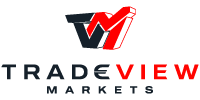
Tradeview
Tradeview Markets, the parent company of Tradeview Forex, was established in 2004 and is headquartered in the Cayman Islands. It is committed to offering a broad and accessible trading environment through ECN trading with direct access to dozens of banks and prime liquidity providers, ensuring tight spreads. The broker offers access to a wide range of financial instruments, including FOREX, indices, stocks, cryptocurrencies, and commodities.
Why we chose Tradeview
Our choice was influenced by this broker’s transparent fee structure and competitive pricing, with low spreads and clear cost disclosures. Traders benefit from predictable pricing without hidden charges. Cost efficiency is a crucial advantage in high-frequency and active trading environments.
| Broker Evaluation | 10.00 |
| Regulations | SCA |
| Minimum Deposit | $0 |
| Islamic Account | Yes |
| Payment Methods | Bank Transfer, Credit Cards, Crypto, Electronic banks, local deposits |
| Main Branch | New York, United States of America |
| Customer Service | |
| Demo Account | Yes |
| Trading Platforms | Metatrader 4, Metatrader 5, cTrader, API/FIX |
Pros
-
Variety of trading platforms, such as MT4, MT5, cTrader, and Currenex, catering to different trading preferences and strategies.
-
Provides ECN trading through its innovative Liquidity Connector®, granting direct access to over 50 banks and liquidity providers. Offers tight spreads starting from 0 pips.
-
A low minimum deposit of only $0 is required to start trading, making it accessible to a wide range of traders.
-
Offers a broad range of financial instruments, including FOREX, indices, stocks, cryptocurrencies, and commodities, thus catering to diverse trading interests.
-
Offers educational materials and a demo account, suitable for both beginners and experienced traders looking to refine their strategies.
-
Supports automated trading through the use of Expert Advisors (EA) on MT4 and MT5 platforms.
-
Regulated by CIMA, MFSA, and will soon be regulated by the UK’s Financial Conduct Authority (FCA).
-
Offers global customer service in multiple languages, catering to international traders.
-
Offers competitive leverage up to 400:1.
-
Charges no fees for deposits, making it cost-effective for traders to fund their accounts.
Cons
-
While regulated by CIMA and the MFSA, the broker is still in the final stages of becoming regulated by the tier-one FCA.
-
This means, unfortunately, that the broker currently has no way of offering compensation to affected traders if the broker goes bust. Of course, once FCA regulation is obtained, it will be mandatory for the broker to be part of the Financial Services Compensation Scheme (FSCS) where you could be entitled to compensation of up to £85,000.
-
Trades on the Innovative Liquidity Connector® account are subject to commission charges, which may add to trading costs.
-
Lacks a dedicated mobile app, relying instead on the mobile versions of its available trading platforms.
-
While offering high leverage up to 400:1 can be an advantage, it also introduces significant risks, especially for new traders.
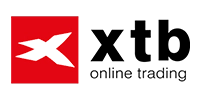
XTB
XTB is a well-regarded broker known for its low costs, extensive asset selection, and advanced trading tools. Founded in 2002 in Poland, it has created a proprietary xStation 5 platform that offers robust features like real-time performance stats, sentiment analysis, and heat mapping. XTB's educational resources are comprehensive, catering to all skill levels with video tutorials, guides, and an accessible Trading Academy. XTB is an excellent choice for cost-conscious traders looking for diverse investment options and high-quality support.
Why we chose XTB
We chose this broker for its responsive and multilingual customer support, available across channels when assistance is needed most. Quick, professional responses reduce friction and build trader confidence. Support quality often reflects overall service reliability.
| Broker Evaluation | 8.55 |
| Regulations | FCA |
| Minimum Deposit | 0$ |
| Islamic Account | yes |
| Payment Methods | Bank transfer, Credit Card, Electronic Banks |
| Main Branch | United Kingdom |
| Customer Service | Market Opening Hours |
| Demo Account | Yes |
| Trading Platforms | MT4, xStation |
Pros
-
20-year history of operation.
-
Regulated by the FCA (UK) and CySEC in Cyprus.
-
Globally recognized, having won multiple awards.
-
Some of the lowest FOREX spreads in the market.
-
Offers protection for client accounts.
-
Emphasis on customer service.
-
Excellent support, as well as learning and research tools.
Cons
-
Does not accept US clients.
-
Number of instruments offered is average-sized.
-
No GSLO.
-
No back-testing or automated trading capabilities.
-
No social trading.

IG Group
IG Group is a highly regarded publicly traded broker that is licensed by 10 regulatory bodies, including the FCA, in its home base of the UK. It offers more than 17,000 financial assets to trade, including currencies, commodities, regular stocks, contracts for difference stocks, ETFs, indices, and cryptocurrencies. Further, it has its own state-of-the-art trading platform and offers a relatively low spread.
Why we chose IG Group
For its clear commitment to transparency and fair dealing, with open terms and client-friendly policies. Honest reporting builds trust and fosters long-term client relationships. We value brokers who prioritise clarity over complexity.
| Broker Evaluation | 8.54 |
| Regulations | FCA |
| Minimum Deposit | $250 |
| Islamic Account | yes |
| Payment Methods | Bank transfer - credit card - Electronic Banks |
| Main Branch | United Kingdom |
| Customer Service | Market Opening Hours |
| Demo Account | Yes |
| Trading Platforms | IG Trading, MT4,ProRealTime,L2 Dealer |
Pros
-
Intuitive mobile and tablet platforms.
-
Low spread costs.
-
Client education offering extensive research materials.
-
Regulated by many reputable authorities.
-
UK and EU clients get negative balance protection.
-
Financially stable and publicly-listed.
-
Rapid response to customer service queries.
-
Extensive range of trading assets.
-
Powerful social trading community.
Cons
-
U.S. clients are limited to FOREX trading only.
-
U.S. clients do not receive negative balance protection.
-
IG CFD prices can be high by industry standards.
-
Limited product portfolio of only CFD and options in many countries.
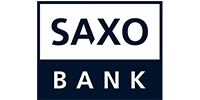
SAXO BANK
Saxo Bank is a well-established, low-risk broker based in Denmark that offers a wide range of trading services to sophisticated traders, institutions, and professional investors. It operates under strict regulatory oversight, ensuring a secure trading environment. The broker provides advanced trading platforms, including SaxoTraderPRO and SaxoTraderGO, catering to high-volume and professional traders with competitive spreads and access to over 71,000 instruments.
Why we chose Saxo Bank
For its comprehensive product range, spanning forex, commodities, indices, and popular CFDs. Such variety allows traders to build diversified portfolios within a single account. This breadth of markets supports evolving strategies and risk preferences.
| Broker Evaluation | 8.09 |
| Regulations | FCA |
| Minimum Deposit | $0 |
| Islamic Account | No |
| Payment Methods | Bank transfer, Credit Card |
| Main Branch | Copenhagen, Denmark |
| Customer Service | Market Opening Hours |
| Demo Account | Yes |
| Trading Platforms | SaxoTrader |
Pros
-
Extensive range of offerings.
-
Offers portfolio-based margin trading for pros.
-
Regulated by top regulators.
-
Excellent trading platforms.
-
Diverse account types.
-
Among the industry’s best research tools.
-
Offers protection for client accounts.
-
No inactivity fee.
-
No platform fees.
-
No minimum funding for entry-level accounts.
Cons
-
Some bonds, options, and futures fees are high.
-
With so many assets, fees can be confusing.
-
High minimum deposit for Platinum and VIP accounts.
-
Does not accept US clients.
-
No MT4 for traders who are used to the platform.
-
No GSLO.
-
No Islamic accounts.
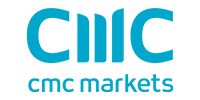
CMC MARKETS
CMC Markets is a global CFD and FOREX broker established in 1989. It is regulated by several authorities globally. The company delivers a formidable offering for traders thanks to excellent pricing, nearly 12,000 tradable instruments, and its proprietary Next Generation trading platform. The platform comes packed with quality research, innovative trading tools, and powerful charting. CMC provides traders with access to an extensive range of CFDs and spread betting across several asset classes.
Why we chose CMC Markets
This broker’s risk management tools and flexible order types stood out to us, enabling traders to tailor positions according to market conditions. Features like stop losses, take profits, and conditional orders provide strategic control. These tools are essential for disciplined trading.
| Broker Evaluation | 8.07 |
| Regulations | FCA |
| Minimum Deposit | 0$ |
| Islamic Account | No |
| Payment Methods | Bank transfer, Credit Card, Electronic Banks |
| Main Branch | United Kingdom |
| Customer Service | Market Opening Hours |
| Demo Account | Yes |
| Trading Platforms | Proprietary Platform, MT4, Web Platform |
Pros
-
Extensive range of offerings.
-
Regulated by the FCA (UK) and other top regulators.
-
Low FOREX fees.
-
Emphasis on education and customer service.
-
Great Web and mobile platforms.
-
Offers protection for client accounts.
-
Research amenities are industry leading.
Cons
-
Does not accept US clients.
-
High CFD spreads for certain indices.
-
It only offers CFD trading, so traders cannot own the underlying asset.
-
Does not support deposits and withdrawals through electronic payments.

think markets
ThinkMarkets is a multi-regulated broker with offices around the globe. The firm is primarily a CFD broker, allowing you to trade across 4,000 instruments in FOREX, futures, commodities, indices, ETFs, crypto, and stocks. With an emphasis on superior customer service, ThinkMarkets maintains round-the-clock support in several languages. It provides different trading accounts suited to individual traders' needs. This includes zero-commission accounts and access to trading guides, analysis tools, and industry news feeds.
Why we chose ThinkMarkets
We selected this broker for its fast and flexible funding options, including bank transfers and card payments. Smooth deposits and withdrawals reduce administrative delays and support efficient capital management. Accessibility of funds is an often-overlooked but essential feature.
| Broker Evaluation | 8.05 |
| Regulations | FCA |
| Minimum Deposit | $0 |
| Islamic Account | Yes |
| Payment Methods | Bank transfer - credit card - Electronic Banks - Crypto |
| Main Branch | Australia |
| Customer Service | Market Opening Hours |
| Demo Account | Yes |
| Trading Platforms | Proprietary Platform, Web Platform, MT4, MT5 |
Pros
-
Beginner assistance is offered through round-the-clock channels.
-
Spreads are as low as 0.0 pips.
-
Round-the-clock expert customer service.
-
CFD shares and indices come at no extra fee.
-
Zero broker fees for FOREX trading.
-
Technical analysis and quality market information.
Cons
-
No binary options are offered.
-
Commissions are charged for two account types.
-
Range of tradeable assets is not as wide as some competitors.
-
No US clients allowed.
How to Verify that a Broker Is FINMA-Regulated
Each Swiss-based FOREX broker with which you are considering opening an account ought to be licensed by FINMA. Details for this should be easily accessible on FOREX companies’ Websites, with each carrying a registry number. In cases where a company claims it is licensed by FINMA, you can easily verify this information by visiting FINMA here: https://www.finma.ch/en. If you find results, then the company’s claims of licensing are legitimate. Otherwise, the company in question is not licensed by FINMA and should be avoided at all times.
How Much Money Do You Need to Get started?
You don’t need much to get started. Some of the best FOREX brokers for beginners allow you to start trading with as little as $1. Of course, you need to capitalize your account with at least some money that will allow you to place trades. The amount is really up to you. However, it is recommended that you start by placing small trades to get to grips with the practice of trading as well as your broker’s Website before you move on to placing trades with more money.
How to Avoid Scams Through FINMA
What to Look for Among the Best FINMA-Regulated Brokers?
Choosing the right broker means balancing cost, reliability, and market access. Compare trading fees, asset coverage, and leverage conditions across regulated platforms. Study execution speed, slippage history, and available analytical tools. A serious trader picks a broker that performs well under real market pressure, not just on paper.
Here’s how we suggest you go about choosing the best FINMA-regulated broker for your needs:
FINMA-regulated: It sounds obvious, but check and double-check that every broker you consider holds the esteemed FINMA license.
All Traders Welcome: Make sure the broker you choose is Swiss-based and accepts local traders and foreign traders, too.
Reputation is Paramount: Be careful to only consider brokers with an ironclad reputation, meeting, if not exceeding, the industry's stringent safety benchmarks.
Competitive Fees: You should zero in on brokers boasting low floating spreads and competitive per-trade commissions. For more information on how spreads work, read our article here.
Sleek, Feature-Packed Platforms: Beyond usability, try to find a broker whose platform is packed with analytical tools to give you that cutting edge.
Diverse Account Offerings: Recognizing that one size doesn't fit all, consider brokers with a broad spectrum of account types—catering to newbies and elite traders with varied strategies.
Diverse Instruments for Every Trader: Every broker should ensure traders have access to a rich mix of instruments across multiple asset classes.
Commission and Fees
This area of consideration is crucial and requires your close attention. For a start, FINMA-regulated brokers must offer you a competitive fee package. Trading fees can sometimes be difficult to track. Be sure to check how these fees compare with industry standards:
Spreads: There are two main kinds of spread, one is fixed and the other is variable. Generally, the spread refers to the difference or gap between two prices, such as the bid/ask rate in a currency exchange rate. An example of a good spread is 1.4 pips for the EUR/USD (the narrower the better, this means that a spread of 1.4 pips is better than a spread of 2 pips). To find out more about pips, go here.
Commission: This is nothing more than the service charge that brokers require for carrying out transactions on behalf of their clients.
Rollover fees: When you leave a trade open overnight, the broker normally charges a rollover fee for the facility of holding your trade open for that period of time. This is because they assume the risk of the market changing adversely.
Withdrawal and Deposit Fees: Some platforms might charge fees for depositing or withdrawing funds. Pay attention to this. It's important to be aware of these and any associated limits or conditions.
Subscription or Inactivity Fees: Certain platforms have monthly charges or fees for inactive accounts. Ensure you're aware of these potential costs.
Using Leverage with FINMA-Regulated Brokers
This is linked to our point above about regulation. Different regulators have different guiding policies in leverage. Consider this, with brokers based in Europe operating under the rules of the European Securities and Markets Authority (ESMA), the leverage for Contracts for Difference (CFD) is heavily regulated. Because of this, you can only get leverage of:
30:1 for major currency pairs
20:1 for non-major currency pairs, gold and major equity indices
10:1 for commodities other than gold and non-major equity indices
5:1 for individual equities and any underlying not otherwise mentioned
2:1 for cryptocurrencies
However, you should note that FINMA does not fall under ESMA rules. Switzerland is not a member of the European Union. Therefore, it is not directly subject to the regulations and directives of ESMA, including the Markets in Financial Instruments Directive II (MiFID II).
However, it's worth noting that Switzerland strives to maintain a financial regulatory framework that is in many ways comparable and competitive with international standards.
Regarding leverage, FINMA hasn’t set a specific maximum leverage limit for FOREX trading as is seen in some other jurisdictions, like those governed by ESMA in the European Union.
However, brokers operating in Switzerland under FINMA are expected to follow strict risk-management protocols, and they are required to ensure that their clients are trading within their means and understand the risks associated with leverage.
It's worth noting that leverage offerings can vary among Swiss brokers, and it's always a good practice for traders to verify the current rules and offerings directly with the regulator.
Recommended Brokers
FINMA and Negative Balance Protection
Tradable Assets and Instruments
Some of the most common assets include FOREX, commodities, crypto, bonds, and more. All the top FINMA-regulated brokers normally have these bases well covered. Some brokers choose to concentrate on FOREX, while others may be strong in other areas. It depends on your interests. When comparing brokers, a handy hint is to create a spreadsheet where you compare the numbers of the tradable assets you may want to trade. Remember that the availability of tradable assets varies depending on the broker and trading platform being used.
Payments, Deposits, and Withdrawals
The Importance of Customer Service
Ask Other Traders on Our Network
Here at Arincen, we’ve gone to extensive lengths to create an enabling environment of networks, where traders of all backgrounds can take part in a vibrant trading space. After all, Arincen’s goal is to simplify the world of trading. Our Website provides an unrivaled slate of tools, like our market-leading signals, rolling news, and a thriving community where traders of all levels of experience can learn and profit from each other.
Trading Platforms, Tools, and Features
As Switzerland is such a vibrant trading space, all brokers based in the country provide a range of tools to enhance your trading experience. They can hardly be complacent in this regard as they will quickly be overtaken. Some brokers have their own proprietary platforms, while others are well served by such tried-and-tested industry favorites as MT4, MT5, and cTrader. For a helpful comparison of the two MetaTrader platforms, read our article here. Switzerland is a technologically capable country that supports brokers who require the fastest networks to support high-volume trades.
With FINMA-regulated brokers, you will generally have access to advanced platforms with deep market access and extremely high platform uptime. Be sure to check on all these points before you settle on your chosen broker.
Tips to Get Started Trading with a FINMA-Regulated Broker
Opening a FOREX trading account is easy. Once you have chosen your preferred FINMA-regulated broker, you must start by filling out an application form as part of the “open account” process. It is normal that you will be asked to provide two documents. These are usually your national identity documents and proof of address. This is part of Know Your Customer (KYC) regulations. Remember that some brokers have slightly different requirements than others.
Once your account has been approved, normally one to two days after you make the application, you will be able to fund your account by making the first deposit. After your account is funded, you can start to trade.
How to Improve Your Knowledge of FOREX Trading
A trading website like en.Arincen.com is a great place to start. We have a large list of curated articles that can give you all the information you need on common FOREX trading terms, like pips, spreads, leverage, and support and resistance. We have also taken the time to prepare detailed articles on important topics, such as FOREX trading strategies. Additionally, once on our Website, you will find helpful video courses that cover the basics of FOREX trading. With this range of knowledge, you will be well on your way to trading success.
Remember also that your broker will normally have developed a detailed education and research repository itself. That is also a good place to bolster your FOREX knowledge, with the extra benefit that your broker’s information will be slanted toward its own platform and resources, which makes it doubly useful.
As such, it’s relatively easy to improve your knowledge of FOREX trading. All the following items should be part of a FINMA-regulated broker arsenal, and they should all help you improve your knowledge of FOREX trading.
Educational Content: For beginners, educational resources are crucial. Look out for platforms offering webinars, tutorials, articles and even demo accounts to familiarize users with trading concepts.
Analytics Tools: The platform should offer robust analytical tools and many methods to evaluate trader performance. This includes historical returns, risk metrics, trading strategies and more.
Community Engagement: A vibrant community can provide peer reviews, insights and discussions, which can be invaluable for both novices and experienced traders.
Real-time Data: This is the lifeblood of social trading. Make sure your broker gives you access to live market data, news updates, and economic calendars that can help in making informed decisions
Filing a Complaint Against a FOREX Broker
In the rare cases where your FOREX broker has unlawfully tampered with your account, then you can file an official complaint with FINMA by visiting the following link https://www.finma.ch/en/finma-public/reporting-information/.
It is very unlikely that a FINMA-licensed company would dare meddle with your account for fear of the repercussions that may result. These include canceling the company’s FINMA license and/or closing it down altogether.
Let’s Recap
Arincen’s Review Methodology
The team at Arincen collected more than 120 pieces of data covering in excess of 100 licensed FOREX companies. Data collection was done in three ways:
Companies’ Websites.
Other Websites that have ranked FOREX companies.
A survey questionnaire (referred to here as Survey “1”) was sent to the companies invited to participate in the exercise. We have identified 13 criteria for our assessment, each containing several aspects and carrying its own relative weight. These include licensing, deposits and withdrawals, number of assets, etc.
Afterward, we validated the data by:
Registering with FOREX companies as a secret shopper and/or as Arincen.
Survey number “2,” in which we asked these companies’ customers for important feedback and past experience.
The next step saw us evaluate and rank each company, relying on the hard work of 15 Arincen employees. We were cautious in ensuring the most accurate assessment possible, including taking into account different languages, as well as the various mobile-app operating systems, e.g., Apple, Samsung, etc.
To add credibility to our research project, we sent a third and final survey (referred to here as Survey “3”) to enable participating FOREX companies to evaluate our own research and whether it accurately reflects the realities on the ground. We were fortunate enough to receive a mark of 9.9 out of 10! We have kept to a minimum the margin of error, which stood at a measly 1%. To learn more about how we came up with the evaluation, please click here.
FAQ
FOREX trading involves buying one currency while selling another, aiming to profit from the changes in their relative values.
Yes. It’s perfectly acceptable for you to open an account with an EU broker that is bound by the rules of MiFID II. You can even sign up with an offshore broker. Just remember that if your broker is not FINMA-regulated, you won’t get access to the regulator’s protections.
FINMA does a good job of ensuring this. If the worst comes to the worst and your FINMA-regulated broker folds, you could be eligible for compensation under the Esisuisse scheme of up to CHF 100,000.
Research and compare brokers based on factors like regulations, spreads, the leverage offered, platform usability, customer service and client reviews. It's essential to select a broker regulated by a reputable authority.
Yes, FOREX trading is subject to taxation in Switzerland, but the specifics depend on the nature of the income and the individual's tax status. There are different requirements for casual traders versus professional traders. One important thing to note is that Switzerland has tax treaties with numerous countries to prevent double taxation. If you are a non-resident trading with a Swiss Forex broker, it's essential to check the tax treaty between Switzerland and your country of residence. Overall, it's crucial to consult with a tax specialist.
Different brokers have different minimum deposit requirements. Some brokers allow you to open accounts with as little as $1, while others might require $500, $1,000, or more. How much you should start with depends on your goals, strategy, risk tolerance and the parameters set by your chosen broker.
We wouldn’t advise it, although, technically, it’s possible. Just know that it’s not really practical for retail traders. For the casual investor, brokers offer a far more accessible entry point into FOREX trading. They provide trading platforms, leverage, and other tools that make trading possible for individual clients.
Leverage in financial trading refers to the ability to control a large position with a relatively small amount of capital. It's a tool provided by brokers that amplifies a trader's capacity to trade by allowing them to deposit a fraction of the full value of their trade. This magnifies both potential profits and potential losses.
Yes, Forex trading involves significant risk. It's possible to lose more than your initial investment, especially when using high leverage. Proper risk management strategies are crucial.

